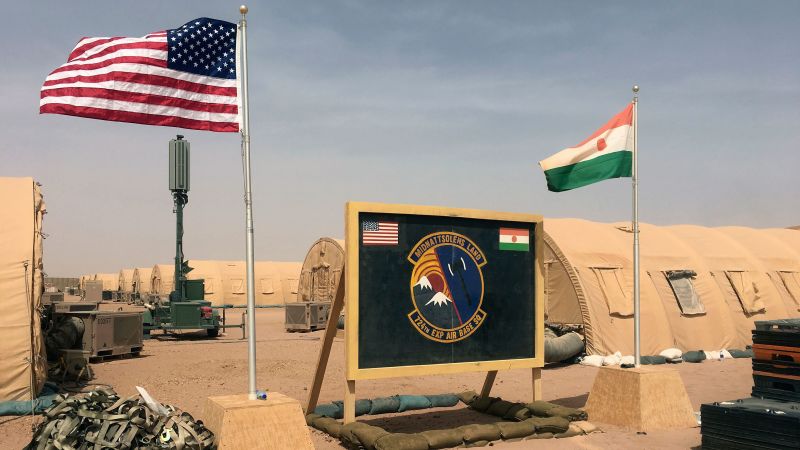US Deputy Secretary of State Kurt Campbell met with Niger’s Prime Minister Ali Lamine Zeine and agreed to militarily withdraw from the country, following Niger’s demands. This decision will have a significant impact on US troop presence in Africa and comes in the midst of concerns about Niger’s deepening relationships with Russia and Iran. The timeline for the withdrawal will be discussed in the coming days with the Department of Defense, marking a change in the US-Niger relationship that has been strained in recent months.
This meeting between Campbell and Zeine was the second of the week, taking place during the World Bank’s spring meetings in Washington, DC. Just last month, Niger had announced the revocation of its military cooperation deal with the US, leading to these conversations that ultimately resulted in the agreement for military withdrawal. Despite Niger’s expressed desire for continued partnership with the US, both countries will be forced to leave the country within a year of each other, while maintaining a diplomatic presence in the region.
In addition, a whistleblower complaint was filed earlier in the week by a senior airman in Niger, alleging that US officials intentionally suppressed intelligence to maintain a facade of a strong relationship between the two countries. This adds to the heightened tensions between US forces and Nigerien officials, following a period of inactivity for US troops stationed in Niger after a military coup displaced the democratically elected president last summer. The strained relationship has led to the decision for a military withdrawal.
The US forces on the continent faced further challenges when Chadian officials threatened to cancel the Status of Forces Agreement (SOFA), which determines the rules for US military personnel operating in the country. While the letter did not directly order the US military to leave Chad, it indicated that all US forces would have to leave a French base in N’Djamena. This threat adds to the uncertainty surrounding US military presence in Africa and highlights the potential complications that could arise in the future.
The expected withdrawal of US troops from Niger underscores the changing dynamics of US-Africa relations and the shifting priorities of US military presence on the continent. Concerns about Russia and Iran’s influence in Niger have likely played a role in this decision, as the US reevaluates its strategic interests in the region. Despite Niger’s desire for continued partnership, the decision for military withdrawal signals a new chapter in US-Niger relations and may have broader implications for US foreign policy in Africa.
As the timeline for the withdrawal is determined in the coming days, the US government will need to navigate the complex challenges posed by the withdrawal from Niger and the potential cancellation of the SOFA in Chad. These developments highlight the complexities of US military presence in Africa and the delicate balance of maintaining strategic interests while respecting the sovereignty and autonomy of African nations. The evolving situation in Niger and Chad underscores the need for diplomatic engagement and strategic decision-making to navigate the changing landscape of US-Africa relations.


